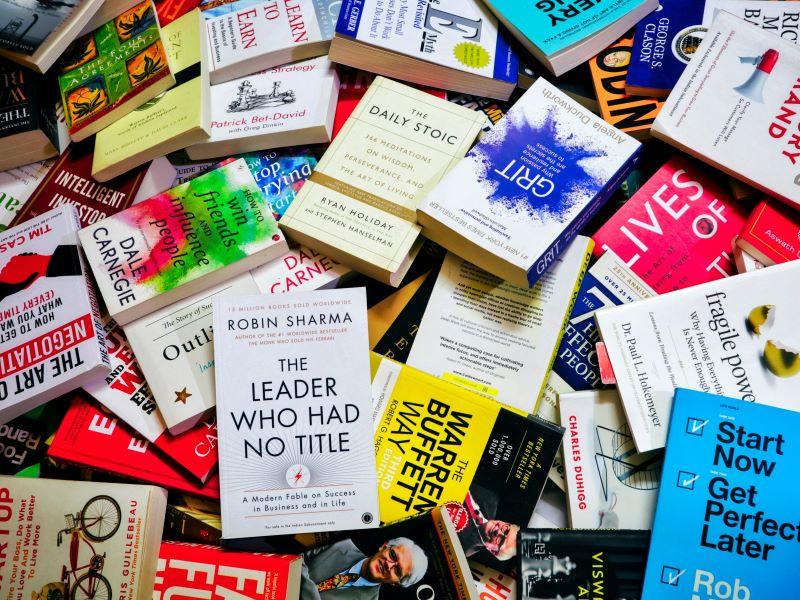
We must end the ‘us and them’ standoff between libraries and publishers
University libraries and publishers remain at a damaging impasse over digital textbooks – the solution requires communication, collaboration and openness to big ideas

The UK’s best-selling fiction book of 2021 was Matt Haig’s The Midnight Library. In the novel, the titular library exists outside of time and space and contains an infinite number of books, each detailing a life the reader might have lived if they had made different choices. In essence, it’s about the life-defining importance of decisions – and their consequences.
I’m reminded of this when I think of how important it is that we choose the right path to overcome the ongoing impasse between university libraries and academic textbook publishers.
For those not familiar with the current stand-off, a brief history: the UK academic publishing industry is more than 300 years old and critical to our nation’s learning. However, after centuries of paper books, the pendulum of progress has swung towards e-textbooks.
- Covid-19 showed that the academic library requires digital evolution
- How to develop inclusive reading lists for distance and blended learning
- Digital resources now rank alongside housing, healthcare and education
Aside from obvious environmental benefits, the educational improvements of e-textbooks are without question. For example, before, we could not track off-campus learning. Now, analytics from our digital learning platform Kortext shows us how students are engaging with their reading in real time. This allows us to identify and support struggling students quickly and improve student retention and academic performance.
Likewise, the accessibility benefits of not needing to visit the library have levelled the playing field for students with mobility, financial and lifestyle challenges.
However, traditional industries disrupted by tech often experience growing pains with how to “cost up” the new future – and publishers and universities find themselves in a similar pricing crisis.
The academic publishing industry is dependent on selling world-class intellectual property to learning institutions, for an affordable price while making a reasonable profit, and it’s perfectly understandable that publishers protect their income.
However, while digital learning platforms have evolved, the legacy publisher financial models have not.
Academic textbooks have always been more expensive than consumer publishing, but the cost-per-usage of print books was affordable, as one copy could remain on a shelf until lost, damaged or out of date. This meant that we could supplement existing stock with new books where needed. However, e-textbooks are usually sold as digital licences, which can be used by only one student for one year – meaning we cannot reuse books.
Likewise, in the past, students understood that no university had the shelf space for copies of all required textbooks for all students. However, as society’s relationship with technology evolves, students have heightened expectations on their university to provide all learning materials whenever and wherever they need them.
The consequence of this is that the old pricing model is unaffordable for digital textbooks.
As chair of the Society of College, National and University Libraries (Sconul) Content Strategy Group, I can say with certainty that we want to help publishers co-create a sustainable future for all.
This starts with open and honest communication – not just between publishers and universities, but also to understand the needs of students, tech partners, authors and everyone else in between. However, despite invitations, thus far publishers have not been keen to view this as an open discussion and appear to favour an “us and them” outlook.
It reminds me a little of the head-in-the-sand attitudes we saw from music and movie executives in the early days of internet piracy, denying that the genie was out of the bottle even when everyone else could see it. It wasn’t until they realised that change had already happened that they were able to talk to stakeholders and find long-term solutions such as Spotify and Netflix.
We can learn lessons from these resolutions if we can secure a representative sample of all stakeholders for a round-table solution-finding event before attention turns to exams after Easter.
This would be no “talking shop” but rather a set of people with the will to find a solution and the means to ensure buy-in. Sconul would attend, and I’m confident that Jisc and numerous digital learning platforms would, too. Publishers would need to be represented by organisations that understand their members’ needs and possess the clout to bring those members along for the journey.
I urgently hope the will exists to meet us halfway, because until publishers find a way to make e-textbook licences more affordable, it’s the students with the least who will continue to be deprived the most. This goes against the ethos of the “levelling-up” agenda.
We must act quickly and be open to new thinking. For example, is a reasonably priced Spotify-style subscription model the solution? With the right implementation, it could work. After all, imagine how much it would level the playing field if every student had equal access to a digital learning platform, whenever they need it, featuring all their course books. Consider how much better universities would be able to educate if every textbook was available to course leaders, meaning that they could choose on quality and relevance alone. Just think how new and diverse authors would attract an audience if there was as much access to their textbooks as more established titles.
However, it requires bold solutions to difficult challenges. If a university spends, say, £100 per student per year through an online subscription model, how can publishers ensure that this investment sustains a long-term benefit in the way that a paper book would? Many academic journal publishers solve this by allowing universities to access previously bought back issues after a subscription expires. This is a key issue in any solution.
Ultimately, whether Spotify-like or something new entirely, an inclusive, better future doesn’t have to be an impossible utopia. With drive and action from a small number of people, it could be actioned before the start of the new academic year. There is no compelling argument against this.
If publishers take up this call to action, then my fellow librarians and I have a real responsibility to be open to ideas that take us from our comfort zones. I’m confident that we will step up to this challenge.
Collaboration, communication and openness to ideas must be the focus of both publishers and librarians to overcome this impasse. If we commit to it, we’ll not only solve this challenge but create a stronger, more inclusive education culture in the UK.
Libby Homer is director of student and library services at Anglia Ruskin University, UK, and a board member of the Society of College, National and University Libraries (Sconul).
If you found this interesting and want advice and insight from academics and university staff delivered direct to your inbox each week, .


